Recycle
Make Your Waste Worthwhile!
In a Flash
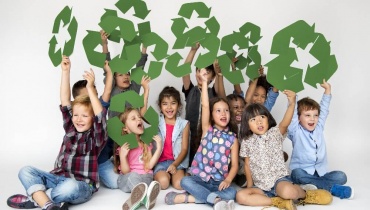
Recycling creates a more sustainable future.
Why is it important to recycle?
Did you know that Aussies generate some of the highest amounts of waste in the world? We produce almost 48 million tonnes of rubbish each year – that's over 2 tonnes of waste each!
Unfortunately almost half of this rubbish is either being dumped in the environment or sent to landfill – which is bad news for our planet.
Recycling helps keep our planet clean, green and sustainable. And the best news is, it's easy to do!
Burning Questions
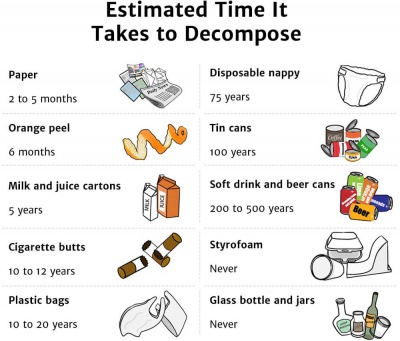
Recycling creates a more sustainable future.
What are the benefits of recycling?
Recycling has lots of brilliant benefits, like these:
- Reduces greenhouse gas emissions
- Saves energy and water
- Conserves non-renewable energy resources for future generations
- Reduces reliance on landfills
- Creates more job opportunities than landfill disposal
- Makes caring for the environment easy
What can I recycle?
You might be surprised at all the items around your household that can be recycled instead of thrown in your rubbish bin.
Anything made from paper, cardboard, firm plastic, metal (aluminium and steel) and glass can be placed in your recycling bin.
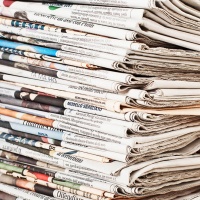
Paper
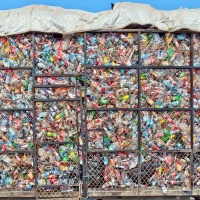
Plastic
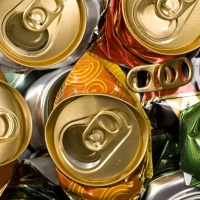
Cans
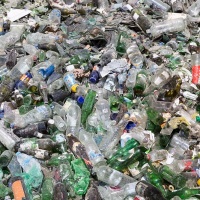
Glass
In the bathroom:
- Toilet rolls
- Shampoo, conditioner and shower gel bottles
- Hair gel tubs
- Aerosol cans, including air fresheners, deodorant and hairspray
- Glass bottles used for perfume, aftershave or vitamins
- Cleaning product bottles
In the laundry:
- Washing detergent boxes
- Plastic containers such as those used for washing liquid, fabric softener, stain remover and cleaning products
In the garage:
- Newspapers
- Boxes
- Empty aerosols
- Packaging materials
- Plastic containers
- Paint tins (empty and dry)
How can I get started with recycling?
Recycling is easy! To get started, here are ten tips for recycling at home:
- Identifying recyclable items around the house is simple if you remember these five materials: if it's made from (1) paper, (2) cardboard, (3) firm plastic, (4) metal (aluminium and steel) or (5) glass, it can be put in your recycling bin at home.
- You can safely dispose of all empty aerosol cans and containers that used to hold household chemicals in your recycling bin.
- Do your best to decide if an item can be recycled, but don't worry if you get it wrong - the recycling facility uses smart technology to remove non-recyclables.
- Make collecting your recyclables at home easier by placing a bin for recyclables in your kitchen, bathroom and laundry.
- Sorting your recyclables at the point of disposal will help you to recycle more.
- Containers don't need to be rinsed before being placed in your recycling bin. Although rinsing does reduce bin odours, not rinsing won't ruin the whole load of recycling or stop the individual item from being recycled.
- Don't put your recyclables in plastic bags – for safety reasons, these cannot be opened at the recycling facility, so all the goods inside are sent to landfill. Instead place loose items in your recycling bin.
- Don't forget that every little bit counts. Even making the effort to recycle one or two extra items each week - such as the junk mail from the letterbox or the empty air freshener can from the bathroom - helps to conserve precious resources from going to landfill.
- Remove the lids from containers and bottles before you place them in the recycling bin. This will save space in your bin and ensure that each material type is recycled.
- Only glass jars and bottles are suitable for recycling. Drinking glasses, ceramics and heat-proof glass (e.g. Pyrex) melt at a different temperature and cannot be recycled. Put these items in your rubbish bin at home.
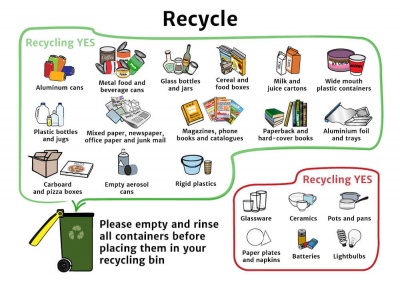
Recycling correctly helps make our planet cleaner and greener.
What Do You Mean?
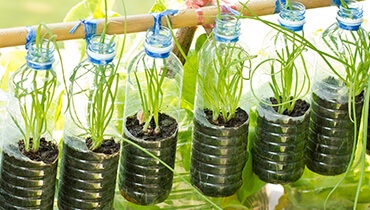
There are some great ways to reuse old plastic bottles and to introduce some greenery as well.
Recycle means to convert waste into reusable materials.
Speedy Summary
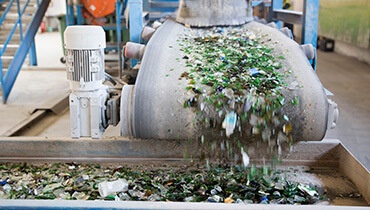
Recycled glass can be used over and over, making it one of the world's most sustainable products.
Recycling saves energy and water, reduces reliance on landfill, and decreases greenhouse gas emissions. It makes our planet cleaner, greener and more sustainable.
Teacher's Toolkit
Take this to the classroom!
Curriculum ready content.